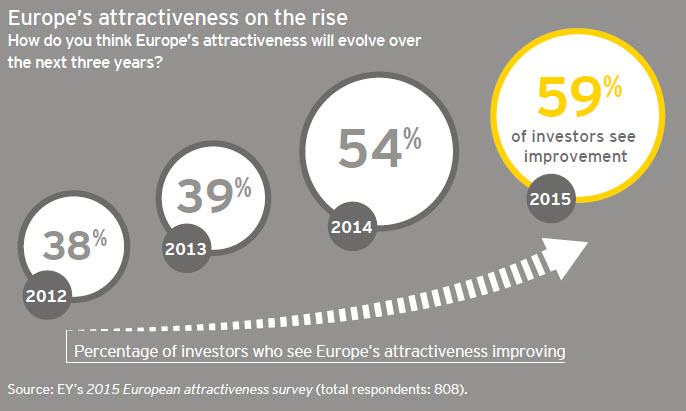Analytics, Employment, EU – Baltic States, Good for Business, Investments, Markets and Companies
International Internet Magazine. Baltic States news & analytics
Saturday, 27.04.2024, 01:28
Baltic States surpass Europe by number of jobs created in 2014
 Print version
Print version
"The Baltic States are leading in the region based on the foreign direct investment (FDI) projects per capita. Interestingly enough, not only green-field investment projects were being implemented in Lithuania and other Baltic States – it was also being reinvested. This means that these countries gained investor confidence: foreign companies that directed investment to the Baltic States trust them and invest again," said Arvydas Arnasius, Investment Promotion and Development Leader for the Baltics at EY.
According to him, 2014 was a record year for Europe from the standpoint of FDI. Compared with 2013, the flow of FDI has increased by 36%, by 10% more investment projects were completed. However, investors mostly focus on Western Europe as 52% of FDI projects were completed in the United Kingdom, Germany and France. Meanwhile, Central and Eastern Europe fall behind in this aspect.
Arnasius said that the share of investment projects in Central and Eastern Europe has dropped from 25 to 20% in the last five years. But investors are creating more new jobs here – the share of new jobs created by FDI in Central and Eastern Europe is 52%.

Biggest foreign direct investors are other European countries, whereas the US accounts for a quarter of the total FDI projects in Europe, while BRIC investors (Brazil, Russia, India and China) account for 5% of FDI in Europe.
Investors who ranked China the most attractive destination for establishing operations in 2012 and 2013 rank it third in 2015, with 38% of the votes. China is rebalancing its economy from investment to consumption, accompanied by a managed slowdown. With wages in manufacturing rising at an average pace of 14% per year between 2009 and 2001, the appeal of Chinese labor costs is diminishing.
This year, 59% of investors believe that Europe’s attractiveness will improve in the next three years. What’s most notable is that investors already established in Europe ranked Western Europe (55%) as the most preferred location to set up operations, followed by China (37%), but investors not present in Europe, much prefer North America (52%) and China (40%) over Western Europe (30%).








 «The Baltic Course» Is Sold and Stays in Business!
«The Baltic Course» Is Sold and Stays in Business!

